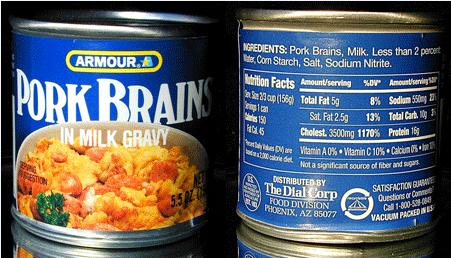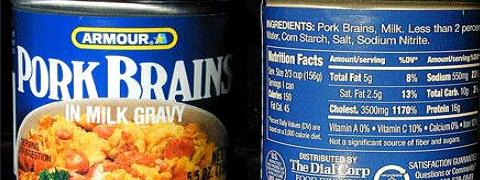[dropcap style=”font-size:100px; color:#992211;”]B[/dropcap]reakfast like a king, lunch like a lord, dine like a pauper.
It’s all about the slow release: pre-stacking proteins to soothe the passage through the day.
And it probably worked really well for a day of manual graft in the fields. Whether sitting down to a pre-dawn turkey roast with a mouth full of toothpaste residue and the black encrustations of Tube-bogies giving a kohl-line to your nostrils before a day spent hunched in front of a computer monitor, is less certain.
Many consumers are aware they should make protein a priority at breakfast, but it may be equally important for them to choose an optimal amount of protein to maximize its benefits, suggests new research presented at the American Society for Nutrition’s Experimental Biology conference this week.
Researchers found that when comparing common breakfasts with varying amounts of protein, a commercially prepared turkey-sausage and egg bowl, cereal and milk, and pancakes with syrup, choosing the higher-protein commercially prepared turkey-sausage and egg bowl provided increased feelings of fullness and lesser calorie intake at lunch, when compared to the lower-protein breakfasts.
Fewer calories consumed at lunch
“There is great value in understanding protein’s true power when optimal amounts are consumed. Protein is top of mind, but consumers should be more informed about how much protein they need at each meal occasion so they can maximize benefits, like hunger control,” said Dr. Kristin Harris, head of nutrition research at Hillshire Brands.
Dr. Melinda Karalus, lead researcher, tested the short-term satiety effects of six breakfast meals similar in calories, fat and fiber and varied in protein; three turkey-sausage and egg-based breakfast bowls containing 40, 23 and 9 grams of protein,  respectively, a cereal and milk breakfast containing eight grams of protein, a pancake and syrup breakfast with three grams of protein or no breakfast.
respectively, a cereal and milk breakfast containing eight grams of protein, a pancake and syrup breakfast with three grams of protein or no breakfast.
Participants were asked to rate their level of hunger before breakfast and at 30-minute intervals for four hours. After four hours, a pasta lunch was served and test subjects were asked to eat until comfortably full. Participants who ate the higher-protein breakfasts had improved appetite ratings throughout the morning, and they also consumed fewer calories during lunch, compared with the lower-protein cereal and pancake and syrup breakfasts, or no breakfast at all.
Blood glucose stability
Other research presented at Experimental Biology further supports the benefits of optimal amounts of protein at breakfast. A different team of researchers found that a commercially prepared sausage and egg breakfast containing 39 grams of protein better stabilized blood glucose levels after eating when compared to a commercially prepared sausage and egg breakfast containing 30 grams of protein and a pancake and syrup breakfast containing 3 grams of protein.
Sources: Karalus, M, et al. The effect of commercially prepared breakfast meals with varying levels of protein on acute satiety in non-restrained women. Abstract presented at Experimental Biology, 2014.
Leidy H, et al. Acute Effects of High Protein, Sausage and Egg-based Convenience Breakfast Meals on Postprandial Glucose Homeostasis in Healthy, Premenopausal Women. Abstract presented at Experimental Biology, 2014.
Photo by Carl Byron Batson. Not to be reproduced without prior permission.

Some of the news that we find inspiring, diverting, wrong or so very right.






















